In a world where stress levels are higher than a cat on catnip, holistic health jobs are becoming the superheroes we never knew we needed. These roles don’t just focus on treating symptoms; they dive deep into the mind, body, and spirit, creating a symphony of wellness that even Mozart would applaud. Whether it’s yoga instructors, nutritionists, or wellness coaches, the holistic health field is bursting with opportunities for those ready to make a difference.
Holistic Health Jobs
Holistic health jobs encompass a diverse array of roles focused on fostering overall wellness. Multiple professions fall under this category, including yoga instructors, nutritionists, and wellness coaches. Each position promotes health by addressing physical, emotional, and spiritual aspects of well-being.
Yoga instructors guide individuals in physical practices that enhance flexibility, strength, and mental clarity. Nutritionists develop personalized dietary plans, emphasizing the importance of nutrition in achieving optimal health. Wellness coaches provide support and motivation, helping clients set and achieve health-related goals.
The demand for holistic health professionals grows as society becomes more aware of the benefits of a balanced lifestyle. Opportunities in this sector range from private practice to corporate wellness programs. Many holistic practitioners find work in spas, fitness centers, or community health organizations, creating an extensive network of support for those seeking healthier lives.
Certification requirements vary by profession, with some roles needing specific training or credentials. As an example, becoming a certified yoga instructor often involves completing a 200-hour training program. Nutritionists may need a degree in nutrition or dietetics alongside certification.
Potential for growth exists within this field. Emerging trends like telehealth and wellness retreats expand possibilities for holistic health jobs. As employers increasingly value employees’ mental and emotional well-being, the integration of holistic practices into workplace environments gains traction.
Overall, these professions not only contribute to individual health but also enhance community well-being. Individuals drawn to holistic health careers often share a passion for helping others achieve balance and improved quality of life.
Types Of Holistic Health Jobs
Holistic health jobs cover various fields focused on improving wellness by addressing physical, emotional, and spiritual needs. Here’s a closer look at some primary roles in this sector.
Practitioners And Therapists
Practitioners and therapists play essential roles in holistic health. They include massage therapists, acupuncturists, and Reiki practitioners. Each professional uses distinct methods to promote healing. Massage therapists relieve muscle tension, while acupuncturists address energy flow through needle placement. Reiki practitioners channel energy to foster relaxation and healing. Many of these roles require specific certifications or licenses. Individuals interested in these careers often pursue training programs to gain expertise in techniques and practices.
Complementary And Alternative Medicine
Complementary and alternative medicine (CAM) encompasses a wide range of practices that support conventional treatments. Roles in this area include herbalists, homeopaths, and naturopathic doctors. Herbalists create specific remedies using plants, while homeopaths provide individualized treatments based on patient histories. Naturopathic doctors focus on holistic health and preventive care through natural therapies. The integration of CAM into traditional healthcare continues to gain traction, reflecting society’s growing preference for holistic approaches to wellness. Career opportunities in this field often require education in specific modalities or extensive experience.
Skills Required For Holistic Health Jobs
Holistic health jobs demand a range of skills necessary for promoting comprehensive well-being. Essential attributes include communication, empathy, and adaptability.
Communication Skills
Effective communication skills prove vital in holistic health roles. Practitioners articulate complex ideas clearly, ensuring clients understand their health plans. Listening actively enhances trust and rapport. Non-verbal cues, such as body language and tone, also play a significant role in client interactions. Professionals must customize their communication styles based on individual client needs. Furthermore, conveying information in an accessible manner builds confidence, making clients more open to guidance.
Empathy And Compassion
Empathy and compassion stand out in holistic health professions. Practitioners often handle sensitive issues, requiring an understanding approach. Recognizing clients’ feelings fosters a deeper connection and improves the overall therapeutic experience. Compassionate attitudes encourage openness, allowing clients to share their challenges without fear of judgment. Professionals who exhibit these qualities create supportive environments conducive to healing. Moreover, responding with kindness leads to enhanced client satisfaction, resulting in lasting relationships.
Job Market And Opportunities
Holistic health jobs present a vibrant landscape filled with diverse opportunities. The demand for roles like yoga instructors, nutritionists, and wellness coaches continues to rise as individuals increasingly seek balanced lifestyles. Data shows a significant increase in wellness programs in workplaces, boosting the need for professionals who can guide employees toward healthier habits.
The job market benefits from various certification requirements across different professions. For example, yoga instructors typically complete specialized training, while nutritionists often hold degrees in nutrition or dietetics. Certification not only helps establish credibility but also opens doors to more job prospects.
Emerging trends in the industry further enhance opportunities. Telehealth offers flexibility for practitioners, allowing them to reach clients remotely. Wellness retreats, popular for their immersive experiences, create spaces for professionals to deliver holistic services. The integration of holistic practices into corporate wellness initiatives shows promise for growth.
Professionals in the field include complementary and alternative medicine practitioners. Massage therapists, acupuncturists, and Reiki practitioners employ unique methods to foster healing. Depending on their modality, many require specific certifications or education. This range of roles highlights a robust framework for career paths in holistic health.
Skills play a vital role in success within this job market. Effective communication is essential for conveying complex ideas and building trust with clients. Demonstrating empathy aids professionals in addressing sensitive issues, fostering supportive environments for healing. Such interpersonal skills not only improve client satisfaction but also promote lasting professional relationships in the holistic health sector.
Education And Certification Pathways
Education requirements vary significantly across holistic health roles. Yoga instructors typically complete a 200-hour training program, which includes coursework in anatomy, philosophy, and teaching practices. Nutritionists often pursue a bachelor’s degree in nutrition or dietetics, followed by a supervised internship to qualify for certification.
Certification pathways are essential for various professions. Many yoga instructors earn certification from accredited organizations like the Yoga Alliance. Nutritionists may obtain credentials such as Registered Dietitian Nutritionist (RDN) after passing a national exam from the Commission on Dietetic Registration.
Further education options exist within complementary and alternative medicine (CAM). Herbalists and homeopaths often attend specialized schools that focus on natural healing practices. Naturopathic doctors, on the other hand, require a four-year degree from a recognized institution after completing undergraduate studies in health sciences.
Online education has gained traction in holistic health fields. Numerous institutions offer online courses in massage therapy, acupuncture, and wellness coaching. The convenience of online learning allows professionals to balance their studies while gaining practical experience.
Continuing education supplements initial training. Professionals explore workshops, seminars, and conferences to stay updated on industry trends and research. Many states mandate ongoing education credits for maintaining certifications, ensuring practitioners remain knowledgeable.
Networking opportunities arise through participation in professional organizations. Engaging with groups like the National Wellness Institute fosters connections with peers and resources. Collaborative networks enhance professional development and broaden perspectives on holistic health approaches.
Enhancing Well-being
Holistic health jobs offer a fulfilling path for those passionate about enhancing well-being. With the growing recognition of the importance of mental and emotional health, these roles are becoming increasingly vital in today’s society. Professionals in this field not only support individual health but also contribute to broader community wellness.
As the demand for holistic practices continues to rise, opportunities are expanding across various sectors. Individuals considering a career in holistic health can find diverse pathways that align with their skills and interests. By embracing this rewarding profession, they can play a crucial role in fostering healthier lifestyles and promoting a balanced approach to well-being.


